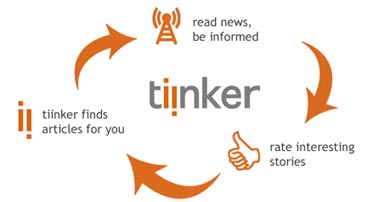We give developers the opportunity to tell us journalists why we should sit up and pay attention to the sites and devices they are working on. In the spotlight this week is Slovenian start-up Zemanta.
1) Who are you and what’s it all about?
We are a young start-up from Slovenia, building a global tool to help online authors with their writing process.
Our product recognises what they are writing about through semantical analysis and as they are writing starts to suggest related pictures, links and articles they can include in their post to make it richer and more appealing.
It currently works for all major blogging platforms, but we envision providers of content management systems and publishers using our service as well.
Click here to see how Zemanta works with WordPress.
2) Why would this be useful to a journalist?
To publish content online today means: after you write your story, you still need to add links and images, and tag it properly.
Your readers expect rich content, next generation semantic web applications require it, and we want to make it simple and fun to produce this high quality web content.
Our service utilises the power of advanced machine-learning and natural language processing algorithms, so that you don’t have to do repetitive tasks and can just be creative.
3) Is this it, or is there more to come?
We will be adding a lot of new releases, such as personalization of suggestions, linking to own old posts and tools for additional media formats. [Since this interview Zemanta has added a reblogging function allowing bloggers to quote from others’ sites with correct attribution]
4) Why are you doing this?
We want to solve the problem authors are facing trying to create interesting online content that their readers will appreciate. It is becoming increasingly hard to produce rich, web articles as the amount of content available is rising.
5) What does it cost to use it?
It’s free for non-commercial use and for a reasonable amount of requests per day. We will keep it free for bloggers.
6) How will you make it pay?
We will be suggesting affiliate links and earning commission on them. We will also offer our extended API for commercial applications.
